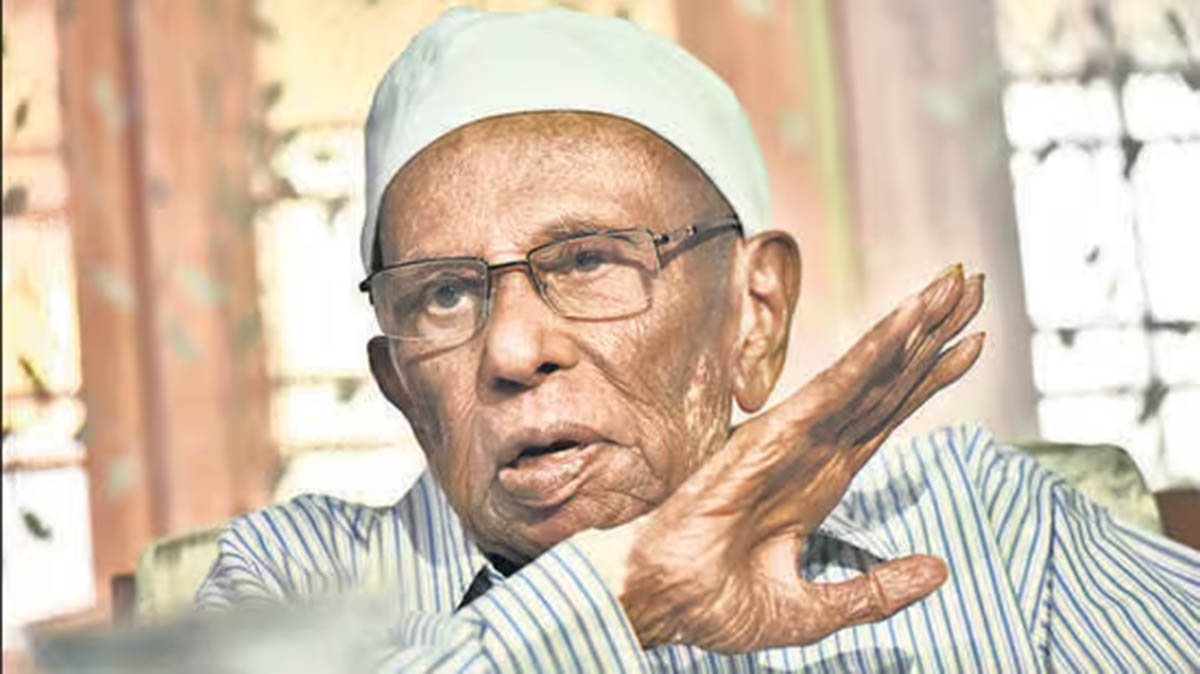On October 28, 2024, Monday, Justice KS Puttaswamy, a trailblazer for privacy rights and former Karnataka High Court judge, passed away at the age of 98. As the lead petitioner in the landmark ‘right to privacy’ case, he played a crucial role in the Supreme Court’s historic recognition of privacy as a fundamental right under Article 21 of the Constitution.
Early life and Legal Journey
Born on February 8, 1926, Justice Puttaswamy had studied in Maharaja’s College, Mysuru and Government Law College, Bengaluru. He was enrolled as an Advocate on January 7, 1952, and later served as the Additional Government Advocate in the High Court. Justice Puttaswamy’s judicial career began when he was appointed as a Judge of the Karnataka High Court on November 28, 1977. After retiring in August 1986, he was appointed the first Vice-Chairman of the Central Administrative Tribunal, Bangalore Bench, on September 1, 1986.
Right to Privacy and Aadhar Case
In 2012, he challenged the constitutional validity of the Aadhaar scheme, leading to significant nuances and deepening of the legal discourse. While the Supreme Court did not strike down Aadhaar, it affirmed that the right to privacy is integral to the right to life, leaving an indelible mark on Indian constitutional law.
The Unique Identification Authority of India (UIDAI) was established in 2009 to “empower Indian citizens with a unique identity through the Aadhaar system.” The first Aadhaar card was issued in 2010; however, the UIDAI was initially created through an executive order without legislative backing, raising concerns about potential infringements on citizens’ rights. One notable critic was the late Justice K.S. Puttaswamy, who challenged the Aadhaar’s validity in the Supreme Court, emphasising that the right to privacy is a fundamental right protected by the Constitution.
In the landmark case K.S. Puttaswamy (Privacy-9J.) v. Union of India (2017) 10 SCC 1, a nine-judge bench unanimously recognised the right to privacy as integral to the right to life and personal liberty under Article 21. Justice D.Y. Chandrachud, writing for the bench, articulated that privacy encompasses personal intimacies and family sanctity, asserting that privacy is not forfeited in public spaces. Subsequently, in K.S. Puttaswamy (Aadhaar-5J.) v. Union of India (2019) 1 SCC 1, the Supreme Court upheld the Aadhaar Act, deeming it valid while striking down certain mandatory Aadhaar provisions. The court acknowledged privacy concerns but concluded that the project’s justifications were sufficient to maintain its legality
Notable judgement
Justice K.S. Puttaswamy’s rulings in key cases reflect his commitment to upholding constitutional principles, particularly equality under Article 14. His judgments addressed arbitrary administrative actions, reinforced the need for transparency, and affirmed the judiciary’s inherent powers to ensure justice in complex situations.
Justice Puttaswamy’s legacy
In R.B. Mutgi v. Karnataka Electricity Board, 1981 SCC OnLine Kar 404, Justice K.S. Puttaswamy addressed the non-examination of claims related to pay scale adjustments, stating that capricious or arbitrary actions by administrative authorities contradict the equality principle enshrined in Article 14 of the Constitution. In Mac Charles Brothers (Private) Limited v. Commercial Tax Officer, X Additional Circle, Bangalore, (1986) 63 STC 452, he expressed disappointment over the CTO’s failure to provide reasons for rejecting a registration certificate for certain goods. He issued a writ of mandamus, deeming the rejection illegal and quashing the CTO’s order concerning “building materials and stone.” In Mohamed Samiullah v. Commissioner of Commercial Taxes, (1986) 61 STC 107, the Full Bench, including Puttaswamy, S.R. Rajashekhara Murthy, and S.A. Hakeem, held that Section 22 of the Sales Tax Act, 1957, confers revisional powers on the Commissioner without violating Article 14. In Corporation Bank Ltd., 1980 SCC OnLine Kar 224, Puttaswamy noted that not every situation in justice administration can be anticipated by the legislature, and Section 151 of the Code allows courts to condone delays in filing essential documents.
Right to privacy
Notably, Justice K.S. Puttaswamy’s passing marks the end of an era for privacy rights in India. As a pioneering advocate for the right to privacy, his legacy is forever etched in the nation’s legal framework. His pivotal role in the landmark Supreme Court case established privacy as a fundamental right under Article 21, significantly influencing constitutional law. Throughout his illustrious career, he championed the principles of justice, equality, and transparency. His notable judgments not only upheld constitutional values but also reinforced the judiciary’s role in safeguarding citizens’ rights. Justice Puttaswamy’s contributions will continue to inspire future generations in the fight for justice and privacy.
Related:
Supreme Court and the Right to Privacy
Understanding the Right to Privacy (R2P)
“The Supreme Court’s Ruling on Right to Privacy is Momentous and Historic”

